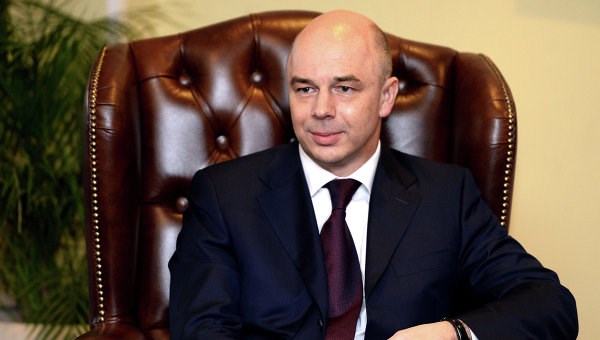Russian Finance Minister promised to hide transactions aimed at moving capital back to Russia
If, next year, the Russian Ministry of Finance issues Eurobonds for businessmen who are interested in moving their capital back to Russia, the information about these investors, their names and amounts, will be protected from the Western financial system by the Russian banking system and the Central Depository, Russian Minister of Finance Anton Siluanov told journalists.
“If our businessmen want to avoid revealing the movement of their capital, they can act through Russian banks. If they open a foreign currency account with a Russian bank, it will interact directly with the National Settlement Depository (NSD) without dealing with other organizations such as Euroclear,” Siluanov said.
This means that all dollar transactions inside Russia between a Russian bank and the NSD will be done “in a circular system without leaving the Russian Federation.” According to Siluanov, American correspondent banks would never participate in such transactions.
For example, if the Ministry of Finance needs to pay a coupon in foreign currency on Eurobonds to a Russian bond-holder through a Russian agent bank, the payment will be done by the NSD itself without disclosing the details of the transaction to any third party, the Minister explained.
Under normal circumstances, dollar-denominated transactions within Russia between Russian commercial banks are carried out through correspondent accounts opened with banks based in the United States. There were incidents when transactions inside Russia were blocked by American bank-counterparts due to sanctions.
According to Siluanov, new Eurobonds would most likely be dollar-denominated but euro denomination is also possible if it is rated better.
Previously, the Ministry of Finance acknowledged the risks of blocking dollar payments on Russian Eurobonds. In the terms and conditions of the latest Eurobond issuances made under sanctions, Russia embedded a special clause that envisaged a possibility to pay investors in currencies other than the US dollar, such as the British pound, euro or Swiss franc.
“Payments on bonds are sensitive to geopolitical events, so if payment in dollars becomes unavailable for some reason, we have accommodated for payments in alternative currencies,” said the prospectus on bonds issued after May 2016.
Siluanov said that the Ministry of Finance “will not fuss” over Eurobonds and does not worry about a new report being drafted by the US Department of Treasury that entails enhanced sanction risks for Russian sovereign debt. The report envisaging enhancement of sanctions on Russian state bonds will be tabled to the US Congress in February 2018. The Bank of America and Deutsche Bank already called it a key risk for foreign investments in Russian securities.
“We will be able to carry on without Eurobonds all next year, or we could be with Eurobonds if Russian businessmen who want to move out money [from abroad] are willing to invest in them. We are also as interested in foreign investors this year as we were last year,” Siluanov said.
When asked when Eurobonds might be issued, Siluanov said that “January would not be the best month for issuance, even if new sanctions are imposed later. January is just not a good month for coming into foreign markets.”
The minister reiterated that, according to estimates of the Ministry of Finance, interested Russian residents would be able to purchase from USD 1 billion to USD 3 billion Eurobonds, but he declined to name any particular investor.
“We were prompted by several entrepreneurs to create a financial instrument denominated in a foreign currency that would allow moving their assets out of western jurisdictions,” Siluanov explained. The terms on bonds (interest, coupon, and maturity) will be up to the market to decide, except for a privilege provided to Russian investors who will be exempt from foreign currency re-evaluation income tax.
Siluanov confirmed that initially, the ministry considered replacing Eurobonds with Russian Federal Bonds (OFZ) denominated in dollars. The idea was discarded because, as the minister explained, “domestic bonds tied to foreign currencies are issued only by low-rated countries that do not have access to foreign markets,” and this would have degraded the quality of Russian state bonds.
